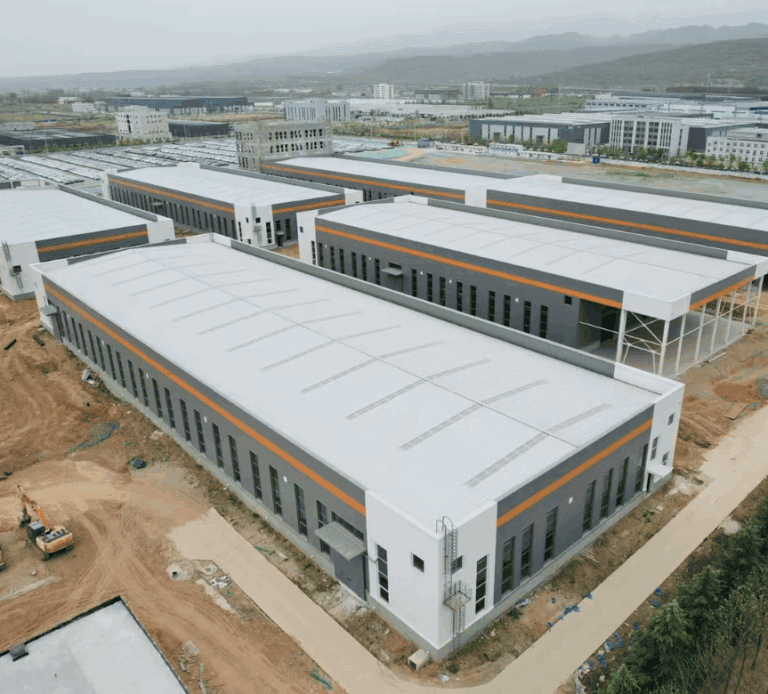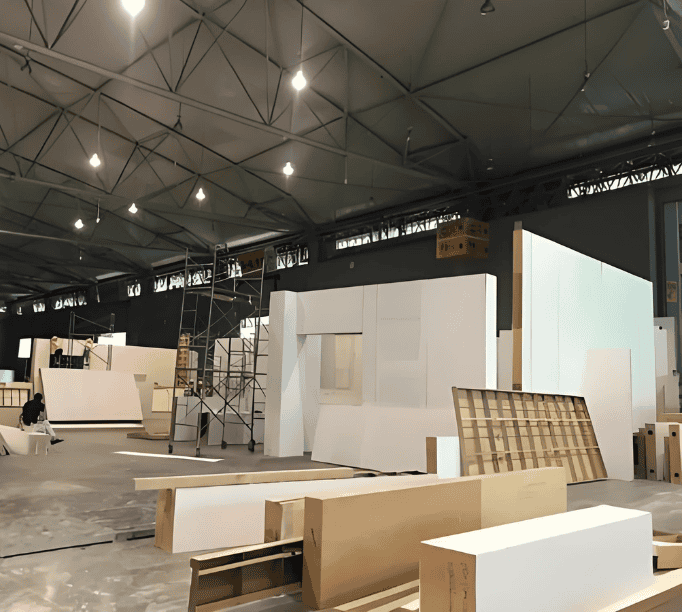Yes, modular construction is better for the environment than traditional building methods! With sustainability becoming more important than ever, the construction industry needs solutions that reduce waste, cut down on carbon emissions, and use resources wisely. Modular construction achieves this by producing building components in a controlled environment, resulting in less waste and faster build times. It also often incorporates recycled materials and uses less energy in the process.
In this article, we’ll show you why modular construction is the greener choice and how it tackles today’s environmental challenges. Ready to learn more? Keep reading!
Materials Usage: Modular Construction vs. Traditional Construction
Traditional construction frequently results in substantial material waste, primarily due to dispersed procurement and imprecise estimates. On-site sourcing tends to cause over-ordering, leaving excess materials unused and ultimately wasted. Additionally, the disposal of surplus materials and packaging further increases the environmental impact. Estimating material needs for traditional builds is rarely precise, leading to inefficiencies and unnecessary waste.
In contrast, modular construction is far more efficient. Materials are pre-measured in factories, greatly reducing the risk of over-ordering. Any leftover scrap is recycled on-site, ensuring minimal waste. With precise calculations in the design phase, only the exact amount of materials needed for each module are ordered, reducing unnecessary consumption.
The result is clear: modular construction can cut material waste by up to 90%, whereas traditional methods often produce 20-30% waste.
Energy Consumption: Modular Construction vs. Traditional Construction
Traditional construction is well known for its high energy consumption. Heavy machinery like cranes and bulldozers run for extended hours on-site, using vast amounts of energy. On top of that, idle equipment or delays due to supply chain issues lead to wasted energy, further exacerbating the environmental impact.
In contrast, modular construction is far more energy-efficient. In a factory setting, production is tightly controlled, allowing for better scheduling and more efficient use of equipment. The process is streamlined, and with significantly shorter construction timelines, the overall energy consumption is greatly reduced.
Studies indicate that modular construction can reduce energy consumption by up to 30% compared to traditional methods. This is primarily due to faster timelines and better equipment management, making it a greener, more sustainable option.
Construction Waste and Pollution: Modular Construction vs. Traditional Construction
With traditional construction, waste and pollution are inevitable. On-site, dust, noise, and debris from heavy machinery are constant, disrupting the surrounding environment. Waste management is typically handled at the site, which is less efficient and can negatively affect local ecosystems.
In contrast, modular construction has a significantly lower environmental impact. The clean, controlled factory environment produces far less dust and waste. Smaller, more organized construction sites result in less disruption to the local area. Additionally, the faster assembly process leads to quicker project completion and less prolonged exposure to pollution.
Studies show that modular projects can generate up to 50% less pollution than traditional builds, making them a cleaner, greener option for construction.
Waste Disposal and Site Cleanliness: Modular Construction vs. Traditional Construction
Traditional construction sites are often messy and inefficient with waste disposal. Materials and packaging waste pile up, much of it ending up in landfills. Cleanup is disorganized, causing delays and adding costs. Scrap metal, concrete, and wood can spread across the site, harming the environment.
Modular construction is far cleaner and more controlled. Most waste is minimized in the factory, where scrap materials are recycled or reused. In fact, certain temporary modular buildings are constructed using recycled materials, further enhancing sustainability. Factory-controlled environments ensure a more organized production process, which reduces on-site waste and helps keep the site cleaner.
With smaller construction sites, cleanup is quicker, and disruption to the surrounding area is minimized.
Modular construction can reduce on-site waste by up to 80% compared to traditional methods, resulting in cleaner sites, fewer environmental concerns, and more efficient waste management.
Related Reading: What Is the Difference between Modular Construction and Traditional Construction?
Modular Construction Still Facing Challenges
Modular construction offers great environmental potential, but there are several challenges:
- High initial factory setup costs: The high cost of setting up factories creates financial pressure at the beginning.
- Transport limitations: Transporting modules is restricted by traffic regulations and size limits.
- Difficulty in standardizing modules: Different project requirements make it challenging to standardize module sizes.
To overcome these challenges, the industry is actively working on solutions:
- Government subsidies: Many governments provide subsidies to support factory development, helping to reduce financial burdens on companies.
- Development of new modular designs: Researchers are working on modular designs that are easily disassembled and reassembled to meet varying project needs.
- Optimizing transport regulations: Traffic authorities are collaborating with the industry to improve heavy cargo transport regulations and boost efficiency.
As these challenges are addressed, the environmental benefits of modular construction will be more fully realized.
As a modular construction manufacturer, we’re also taking action. We break down modules into smaller units, making transportation easier and installation smoother for clients. Plus, our factory ensures that each module fits perfectly together, with the highest quality standards, providing the best possible experience for our customers.
Choose Our Modular Construction for Sustainable Benefits
Modular construction outshines traditional methods in every aspect of environmental impact. From reduced material waste and lower energy consumption to minimized construction pollution, it offers a far greener solution. The efficiency of prefabrication and streamlined assembly ensures less disruption and a significant reduction in on-site waste, making it a truly sustainable option.
By choosing our modular buildings, you unlock sustainable benefits that help save costs and reduce your environmental footprint. Whether for schools, commercial spaces, or residential projects, we can deliver high-quality, energy-efficient structures tailored to your specific needs. With our precision manufacturing, we guarantee a perfect fit and seamless installation, helping you achieve your sustainability goals faster and more efficiently.
Let us assist you in creating a greener future.

